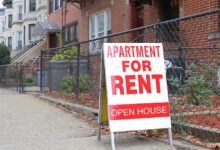Homes to Rent by Owner: Find Lower Rental Costs
Homes to Rent by Owner – Are you searching for the perfect home to rent? Look no further! Renting a home directly from the owner can be a fantastic option that provides numerous benefits. In this comprehensive guide, we will delve into everything you need to know about homes to rent by owner, from the advantages they offer to the steps involved in finding your dream rental property.
Whether you are a first-time renter or have been through the process before, understanding the ins and outs of renting directly from the owner can save you time, money, and potential headaches. So, let’s dive in and explore the world of homes to rent by owner together!
The Advantages of Renting a Home Directly from the Owner
When it comes to renting a home, opting for a property directly from the owner brings several advantages. Firstly, by bypassing a real estate agent or property management company, you can avoid paying additional fees or commissions. This can significantly reduce your upfront costs and make renting more affordable.
Lower Rental Costs
One of the primary advantages of renting directly from the owner is the potential for lower rental costs. Property owners often set their rental prices based on their own calculations and financial goals, rather than relying on market trends or agent recommendations. This can result in more competitive rental rates, allowing you to save money each month.
Flexible Lease Agreements
Another significant advantage is the flexibility that comes with renting from an owner. Unlike a property management company that may have strict lease terms, owners are often more open to negotiating lease agreements. You may have more freedom to discuss lease duration, payment schedules, or even specific clauses that suit your needs.
Direct Communication and Personalized Service
When renting from an owner, you have the opportunity for direct and personalized communication. This can be particularly beneficial when it comes to addressing any concerns, maintenance requests, or inquiries. By dealing directly with the owner, you can have a more immediate and personalized response to your needs, ensuring a more pleasant renting experience.
Stronger Sense of Community
Renting from an owner can also foster a stronger sense of community compared to renting through a property management company. Owners often have a vested interest in maintaining a positive relationship with their tenants, as they typically have a personal connection to the property. This can result in a more welcoming and friendly environment, making it easier to establish a sense of belonging.
Finding the Right Home to Rent by Owner
Now that you understand the advantages of renting a home directly from the owner, it’s time to explore how you can find the perfect rental property. With various resources available, it’s essential to know where to look and how to make the most of your search.
Online Platforms
The internet has revolutionized the way we search for rental properties, and numerous online platforms cater specifically to homes for rent by owner. Websites such as Craigslist, Zillow, and Rent.com allow owners to list their properties directly, providing you with a wide range of options to choose from. Consider using multiple platforms to increase the chances of finding your ideal home.
Local Classifieds and Community Bulletin Boards
Don’t underestimate the power of traditional methods when searching for a rental home. Local classifieds in newspapers or community bulletin boards can still be valuable resources for finding homes to rent by owner. Many owners prefer these channels to target a specific local audience, so keep an eye out for advertisements in your community.
Word of Mouth and Referrals
Networking and word of mouth can be incredibly helpful when searching for rental homes directly from the owner. Let your friends, family, and colleagues know that you are in the market for a rental property. They may have connections or know someone who has a property available for rent. Additionally, joining local community groups or online forums can provide valuable leads and recommendations.
Evaluating the Rental Property
Once you have identified potential rental properties, it’s crucial to evaluate them thoroughly before making a decision. This will help ensure that the property meets your needs and is in good condition.
Physical Condition and Maintenance
Inspect the property carefully to assess its physical condition. Look out for any signs of damage, such as leaky faucets, cracked walls, or faulty electrical outlets. Take note of the overall cleanliness and maintenance level, as this can indicate how well the owner has taken care of the property. If any issues are identified, discuss them with the owner to determine how they will be addressed before you move in.
Amenities and Features
Consider the amenities and features that are important to you. Does the property have the necessary appliances, such as a refrigerator, stove, or dishwasher? Are there laundry facilities on-site or nearby? Take note of any additional features that would enhance your living experience, such as a private backyard, parking space, or access to a swimming pool or gym.
Neighborhood and Surrounding Area
When renting a home, the neighborhood and surrounding area play a significant role in your overall satisfaction. Explore the neighborhood during different times of day to get a sense of the noise levels, traffic, and overall ambiance. Research nearby amenities, such as grocery stores, schools, parks, and public transportation options, to ensure they align with your lifestyle and convenience needs.
Negotiating the Rental Terms
Once you have found a rental property that meets your requirements, it’s time to negotiate the rental terms with the owner. This step allows you to ensure that the lease agreement aligns with your needs and preferences.
Lease Duration
The lease duration is a critical aspect to consider and negotiate. Determine whether you prefer a short-term or long-term lease based on your plans and flexibility. Discuss this with the owner and find a mutually beneficial agreement that meets both parties’ requirements.
Monthly Rent
The monthly rent is another negotiable aspect of the rental terms. Research the average rental prices in the area to ensure that the owner’s asking price is fair and reasonable. If you believe the rent is too high, present your case to the owner and provide supporting evidence, such as comparable rental listings or market trends.
Additional Fees and Expenses
Be aware of any additional fees or expenses that may be associated with the rental property. This can include utility bills, homeowner association fees, or parking fees. Discuss these costs with the owner to ensure that you have a clear understanding of your financial obligations beyond the monthly rent.
Repairs and Maintenance Responsibilities
Clarify the owner’s responsibilities regarding repairs and maintenance. Understand who is responsible for addressing minor repairs, such as a leaky faucet or a broken light fixture. Discuss how major repairs will be handled, including the timeline for repairs and who will cover the costs.
Understanding the Lease Agreement
Before finalizing the rental agreement, it’s essential to thoroughly understand the terms and conditions outlined in the lease. This will help avoid any misunderstandings and ensure that you are comfortable with the agreement.
Lease Duration and Renewal Options
The lease duration and any renewal options should be clearly stated in the agreement. Review these terms to ensure they align with your plans and expectations. If you have any questions or concerns, discuss them with the owner before signing the lease.
Rental Payments and Late Fees
Understand the details of rental payments, including the due date, accepted payment methods, and consequences of late payments. Familiarize yourself with any late fees or penalties that may be imposed if you fail to pay rent on time.
Security Deposits and Refunds
Security deposits are a standard practice when renting a home. Review the amount required, the conditions for refund, and any deductions that may be made from the deposit. Ensure that you are clear on the expectations for refunding the deposit when you move out.
Termination and Early Termination Clauses
Examine the termination and early termination clauses in the lease agreement. Understand the conditions under which either party can terminate the lease before its expiration date. Be aware of any penalties or additional fees that may apply if you decide to terminate the lease early.
Tenant Rights and Responsibilities
As a tenant, it’s crucial to be aware of your rights and responsibilities to maintain a healthy landlord-tenant relationship. Familiarize yourself with the laws and regulations that govern tenant rights in your jurisdiction.
Right to Quiet Enjoyment
One of the fundamental rights of a tenant is the right to quiet enjoyment of the rental property. This means that the owner must not interfere with your right to live peacefully in the property. If you experience any disturbances or infringements on your right to quiet enjoyment, communicate with the owner to address the issue promptly.
Maintenance and Repair Responsibilities
Understand your responsibilities regarding maintenance and repairs. Typically, tenants are responsible for minor maintenance tasks, such as replacing light bulbs and keeping the property clean. Major repairs, such as fixing plumbing issues or replacing appliances, are usually the owner’s responsibility, but it’s essential to clarify this in your lease agreement.
Privacy and Access</h3
Privacy and Access
Your lease agreement should outline the owner’s rights to access the rental property. Typically, owners are required to provide notice before entering the property for inspections or repairs. Understand your rights to privacy and ensure that the owner respects these boundaries.
Security and Safety
As a tenant, you have the right to a safe and secure living environment. Be aware of any safety measures in place, such as smoke detectors, fire extinguishers, or security systems. If you identify any safety concerns, report them to the owner immediately to ensure they are addressed promptly.
Dispute Resolution
In the event of a dispute or disagreement with the owner, familiarize yourself with the dispute resolution process outlined in your lease agreement. This may involve mediation or arbitration to resolve the issue. Understanding this process beforehand can help you navigate any potential conflicts more effectively.
Making Rent Payments and Security Deposits
Once you have finalized the lease agreement, it’s important to understand the process of making rent payments and handling security deposits. Being responsible and organized with your financial obligations can contribute to a positive landlord-tenant relationship.
Rent Payment Methods
Clarify the accepted methods of rent payment with the owner. This could include options such as cash, check, bank transfer, or online payment platforms. Ensure that you have a clear understanding of how and when rent should be submitted to avoid any confusion or late payments.
Security Deposit Handling
Discuss the details of handling the security deposit with the owner. Determine the amount required and the timeline for submitting the deposit. It’s essential to understand the conditions under which the deposit will be refunded and any deductions that may be made for damages or unpaid rent.
Keeping Rent Payment Records
Maintain accurate records of your rent payments. This can include receipts, bank statements, or any other evidence of payment. Keeping a record can help protect you in case of any disputes or discrepancies regarding your rental payments.
Communication Regarding Payment Issues
If you encounter any financial difficulties that may affect your ability to make rent payments on time, communicate with the owner as soon as possible. Open and honest communication can often lead to finding a mutually beneficial solution, such as a temporary payment arrangement or an extension.
Maintaining the Rental Property
Once you have moved into the rental property, it’s important to maintain it properly to ensure a comfortable living environment and a positive relationship with the owner.
Reporting Maintenance Issues
Promptly report any maintenance or repair issues to the owner. This can include anything from a leaky faucet to a malfunctioning appliance. Be specific and provide as much detail as possible to assist the owner in addressing the issue effectively.
Regular Cleaning and Upkeep
Take responsibility for regular cleaning and upkeep of the rental property. This includes basic tasks such as keeping the property tidy, cleaning regularly, and disposing of trash properly. By maintaining cleanliness, you contribute to a positive living environment and show respect for the property.
Respecting the Property and Surroundings
Treat the rental property with care and respect. Avoid causing any damage or excessive wear and tear. Be mindful of the surrounding community and neighbors, following any rules or regulations that may be in place, such as noise restrictions or parking guidelines.
Landscaping and Outdoor Maintenance
If the rental property has a yard or outdoor space, ensure that you properly maintain it. This may include regular mowing, watering plants, or removing leaves and debris. Discuss with the owner any specific expectations regarding outdoor maintenance.
Renewing or Terminating the Lease
As the end of your lease term approaches, you will need to decide whether to renew the lease or terminate the agreement. Consider your future plans and communicate your intentions with the owner well in advance.
Communication with the Owner
Initiate a conversation with the owner to discuss your lease renewal or termination. Express your intentions clearly and ask about their preferences and plans. This communication will help both parties make informed decisions and plan accordingly.
Lease Renewal Options
If you wish to renew the lease, discuss the available options with the owner. This may involve extending the current lease agreement, renegotiating the terms, or signing a new lease altogether. Review the terms carefully and ensure that they align with your needs and expectations for the upcoming lease term.
Moving Out and Security Deposit Refund
If you decide to terminate the lease, follow the agreed-upon procedure for moving out. Ensure that you leave the property in the same condition as when you moved in, or as specified in the lease agreement. Arrange a final inspection with the owner to determine any deductions from the security deposit and the process for refunding the remaining amount.
Giving Notice
When terminating the lease, provide the owner with appropriate notice as per the terms of your lease agreement. This will give the owner sufficient time to find a new tenant or make necessary arrangements. Adhere to the notice period specified in your lease, typically 30 or 60 days.
Dealing with Challenges and Disputes
Despite your best efforts, challenges and disputes may arise during your tenancy. It’s essential to approach these situations calmly and rationally, aiming to find resolutions that are fair and reasonable for both parties.
Communication and Documentation
When faced with a challenge or dispute, maintain open and clear communication with the owner. Clearly express your concerns, providing any necessary documentation or evidence to support your claims. Keep a record of all communication and interactions related to the issue at hand.
Mediation or Arbitration
If direct communication with the owner does not lead to a resolution, consider seeking mediation or arbitration. These alternative dispute resolution methods involve a neutral third party who can help facilitate a fair and mutually agreeable solution.
Legal Advice
In more complex or contentious disputes, it may be necessary to seek legal advice. Consult with a lawyer who specializes in landlord-tenant matters to understand your rights and explore the best course of action. Legal professionals can provide guidance and representation if the situation escalates.
In conclusion, renting a home directly from the owner offers numerous benefits and can be an excellent option for those seeking a comfortable and affordable living space. By following the steps outlined in this guide, you will be well-prepared to find, evaluate, and secure your dream rental property. Remember to communicate openly, maintain a positive relationship with the owner, and be aware of your rights and responsibilities as a tenant. Happy renting!



